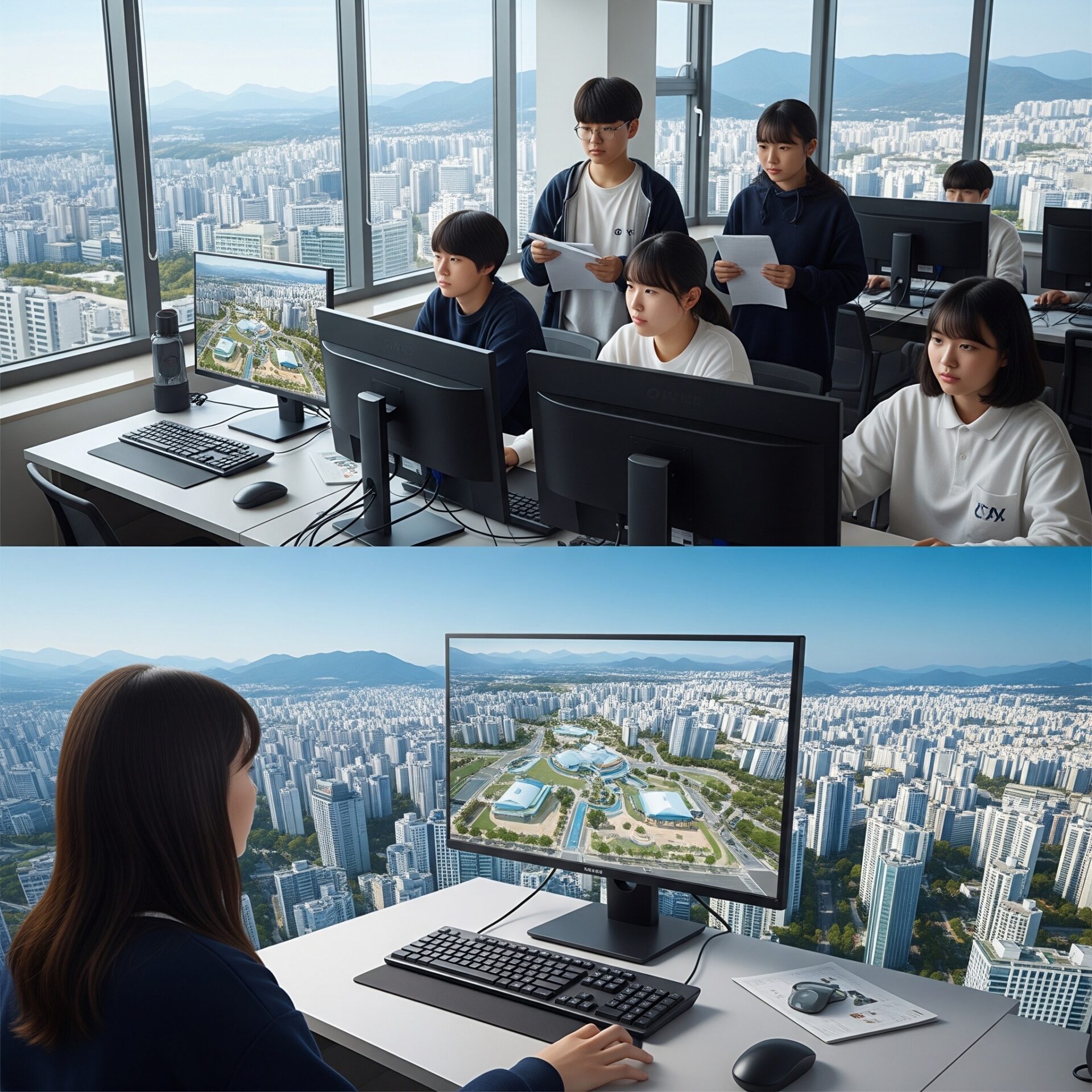150 students in Jeonbuk Province are creating virtual cities for the 2036 Jeonju Summer Olympics using cutting-edge tools like Clova, Suno AI, and Meshy in the SW·AI Challenge, drawing blueprints for future digital Olympics.
Immersive Olympic City Design Experience in the Metaverse
The ‘2025 3rd SW·AI Challenge’ held at Sweet Hotel in Namwon, Jeonbuk, has transformed beyond a simple coding competition into an immersive urban design experience. Participants are utilizing next-generation AI tools like Clova, Suno AI, and Meshy as digital architects, implementing virtual Olympic cities that come to life at their fingertips in real-time. The virtual Olympic stadiums designed by students are rendered with realistic 3D modeling, providing vivid experiences through metaverse platforms where team members collaborate as if they were future urban planners. The process offers participants the authentic sensation of being professional city designers working in three-dimensional space.
Revolutionary Urban Planning with Next-Gen XR Technologies
The core innovation of this program lies in moving beyond traditional 2D screens to design entire cities three-dimensionally within metaverse spaces. Student participants create stadium crowd sounds using AI voice generation tools, precisely design building exteriors with 3D modeling AI, and share ideas with teammates in real-time through metaverse platforms. Thanks to AI tools with significantly improved accessibility compared to traditional CAD programs, even elementary students can produce professional-level visual results, making it possible to implement complex urban infrastructure through intuitive interfaces. The seamless integration of multiple AI technologies creates an unprecedented design workflow that democratizes professional-grade urban planning tools.
Building Creator-Centered Metaverse Education Ecosystem
The competition’s operational approach itself presents a new model for the creator economy. Elementary students participate in a one-day metaverse basics program, while middle and high school students engage in intensive 1-night-2-day advanced AI-powered city design programs, providing structured learning pathways. The 45 participating teams realize their creative ideas on metaverse platforms, naturally acquiring digital content creation capabilities through hands-on experience. Jeonbuk Province plans to connect outstanding works with local universities for potential integration into actual Olympic infrastructure design, opening possibilities for students’ virtual creations to evolve into real-world projects.
Business Models and Expansion Strategies for Immersive Education
This competition demonstrates how metaverse-based education can simultaneously achieve regional economic revitalization and talent development. The collaborative model between the Ministry of Science and ICT’s SW Future Fulfillment Project, Jeonbuk Province, and Namwon City is evaluated as a successful public-private partnership model for XR education platform operations. The ecosystem structure where Jeonbuk Technopark provides technical support and local universities handle result optimization presents a sustainable business model that other regions can benchmark.
Mainstreaming Metaverse Education and Future Prospects
While high prices of metaverse devices and technical barriers to entry still exist, expanding accessibility through public support, as demonstrated in this competition, is emerging as a viable solution. The SW Future Fulfillment Jeonbuk Center established in Namwon provides regular XR education opportunities for regional youth, contributing to balanced regional development of digital education infrastructure. If such educational programs continue expanding until the 2036 Jeonju Summer Olympics, Jeonbuk Province is expected to establish itself as a leading model for metaverse-based smart cities.

